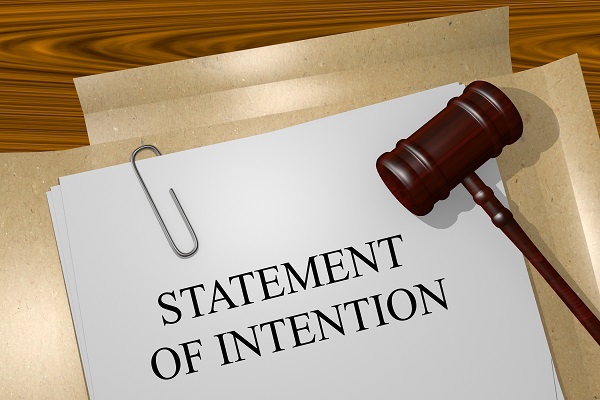What Is A Statement Of Intention In A Bankruptcy Case?

Alberto Montefalcon has the experience and knowledge to help any person properly consider his or her options when overwhelmed with financial difficulties as a result of unpaid debt. One possible viable option for individuals who are delinquent on debt payments is filing a Chapter 7 bankruptcy case, which allows a person to discharge the obligation to pay most of their debts.
Today’s blog provides some basic information about one of the documents which every Chapter 7 debtor must file in his or her bankruptcy case: The Statement of Intention (SOI).
When filing bankruptcy, debtors are required to file specific schedules of assets and liabilities, as well as a statement of financial affairs. In addition to these documents, every Chapter 7 debtor must file a Statement of Intention, which informs interested parties such as the Chapter 7 trustee and creditors of the debtor’s intentions regarding personal property that is leased or not owned free and clear, i.e., is subject to some secured interest.
A debtor must make one of the following declarations regarding leased and secured personal property on his or her Statement of Intention:
- the property is exempt;
- (SURRENDER) the property will be surrendered;
- (REAFFIRMATION) the debt that the property secures will be reaffirmed; or
- (REDEMPTION) the debt that the property secures will be redeemed.
When a debtor surrenders property, he or she gives up possession and permanently foregoes any interest in the property. The balance owed for a deficiency after sale of the asset will be discharged in the debtor’s bankruptcy case and the debtor’s interest in the asset is terminated.
When a debtor redeems property, he or she agrees to pay a secured creditor the replacement value of the property rather than the actual and full balance owed on the debt.
Probably the most significant action is that of reaffirmation. In this case, a debtor agrees that the legal obligation for the debt will survive the bankruptcy case and no discharge of the debt will be granted at the end of the bankruptcy case.
In some cases, a creditor may permit a debtor to retain the asset without reaffirming or redeeming the debt if payments on the debt are current as of the time of the filing of the Chapter 7 bankruptcy case.
If you are behind on payments for any outstanding debts, bankruptcy may a solution to keeping your motor vehicle. The experienced Sacramento metropolitan area/Northern California attorneys at the Montefalcon Law Offices are here to help you if your financial position necessitates the consideration of a bankruptcy case filing under Chapter 7, 11, or 13. Contact us online or schedule a consultation at any of our three conveniently located offices. Telephone our downtown Sacramento office at (916) 444-0440, our South Sacramento office at (916) 399-9944, or our Concord office at (925) 222-5929.

